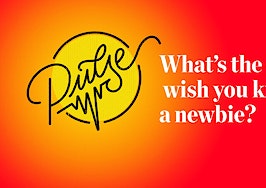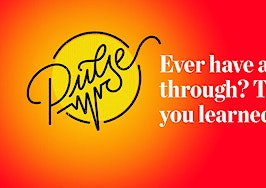 It’s never been a more interesting or exacting time to be an indie broker. In November, Inman celebrates the indie by narrowing in on what growth tactics are working best and what tech is emerging that offers the best competitive advantage.
It’s never been a more interesting or exacting time to be an indie broker. In November, Inman celebrates the indie by narrowing in on what growth tactics are working best and what tech is emerging that offers the best competitive advantage.
Pulse is a recurring column where we ask for readers’ takes on varying topics in a weekly survey and report back with our findings.
Both indies and national big-box brokerages have their perks. A larger brokerage might offer more robust resources and training opportunities. Not to mention, there’s also something to be said about the weight a brand’s name recognition carries in this industry.
On the hand, an indie brokerage can give agents more flexibility, a tight-knit culture and the ability to choose which area of the market to zero in on. Last week, we asked readers: “Which model do you think benefits agents most, considering today’s market?”
In short, the question of which brokerage to choose is not an easy one to answer, as our results show. And for the most part, it also depends on the agent’s wants, needs, preferences and goals.
Below are our top reader responses from the survey, Facebook and other discussion. Indies won this poll, but in the interest of not boring you, we’re only going to include responses that were longer than one word.
- Big box. There’s no way an Indie can provide the technology, services, IT support, brand name power, and the highest trained management that big-box brokerage can.
- Big company because when we do broker tours, and try to sell our listings, there are MORE agents.
- Indie brokerage; I personally feel that agent relationships tend to be more tight-knit and supportive. The fact that there are no “marketing centers” is nice because it allows me to advertise however I’d like (obviously while being within state and brokerage guidelines), and the fact that we personally don’t have any “transaction coordinators” is nice — if i need to call someone or get something done, I know that I’m only going to get that one person. [It] makes it easier to keep track of things.
- I like the big-box broker model because there is just more to offer an agent. The culture can be created at the team level, a mini brokerage within a brokerage. The ability for big-box brokers to deliver revenue sharing, stock opportunities, exposure to bigger producing agents in other areas helps to propel and grow my business. I have found that an agent is only as good as the top agents that he/she are exposed to. I work at Real Broker, and I have a team of 12 agents. We started our team in May and have grown over 300 percent. Without the experience of my fellow team leaders within my brokerage, we wouldn’t have been able to successfully scale our business. We have gone from working 40 incoming buyer leads in June to 155 incoming buyer leads for November and our culture and training is very strong.
- I have learned that both have their place and value to agents. It depends on the market the agent works in, where they are in their career and what the agent values from a brokerage partner.
- There is no one-size-fits-all for all agents in every market, and no two big-box brokerages are the same nor are any two “indie” companies. There are actually some super huge independent companies. As I discovered not all offices within the same company operate the same way.
Editor’s note: These responses have been edited lightly for style and grammar.
Please add your 2 cents in the comments section below.










